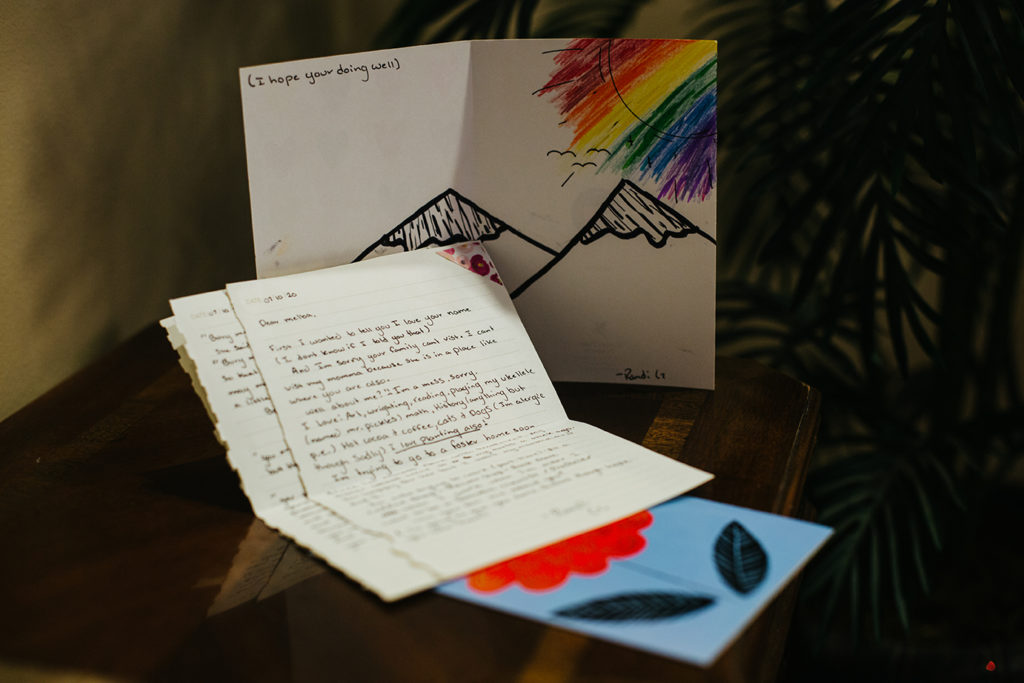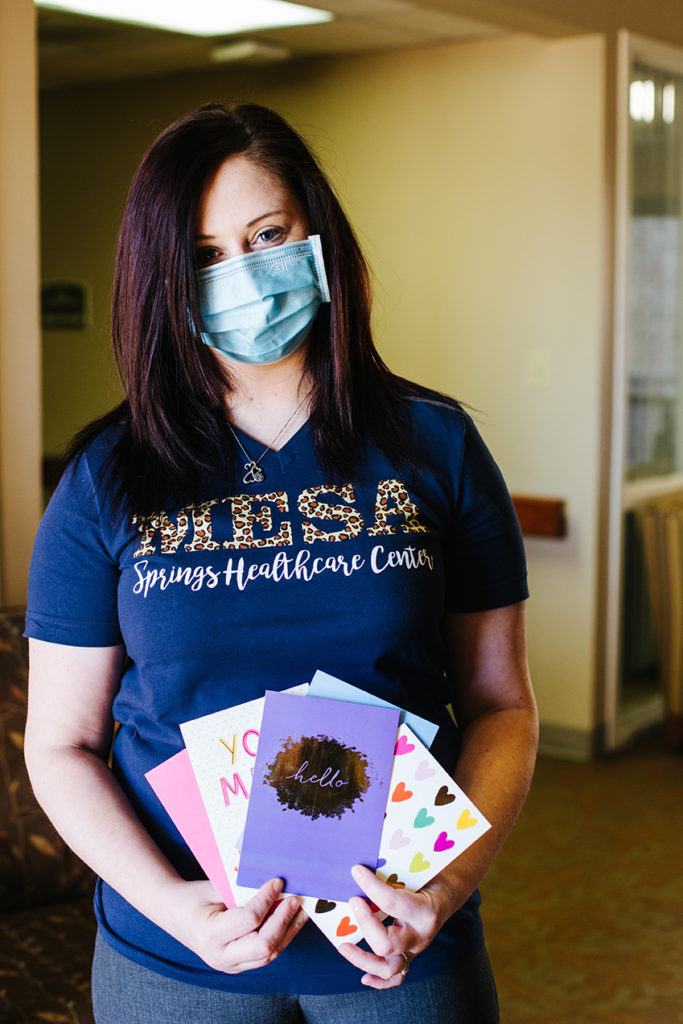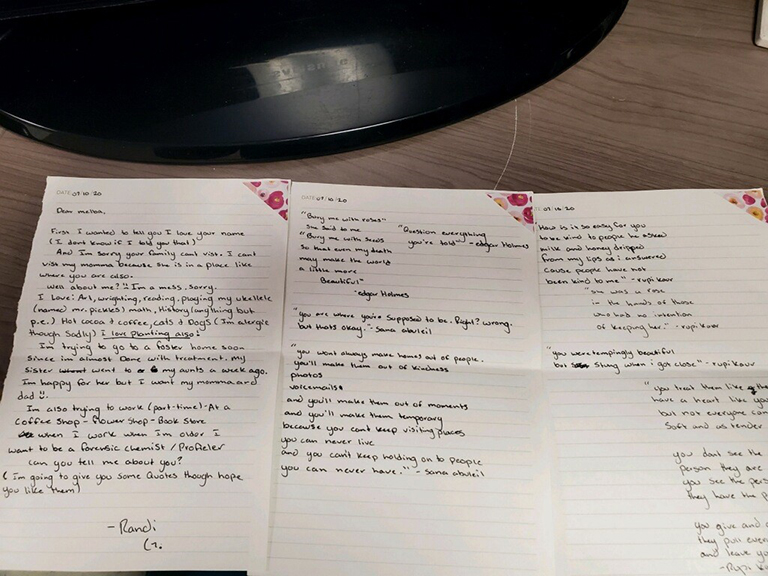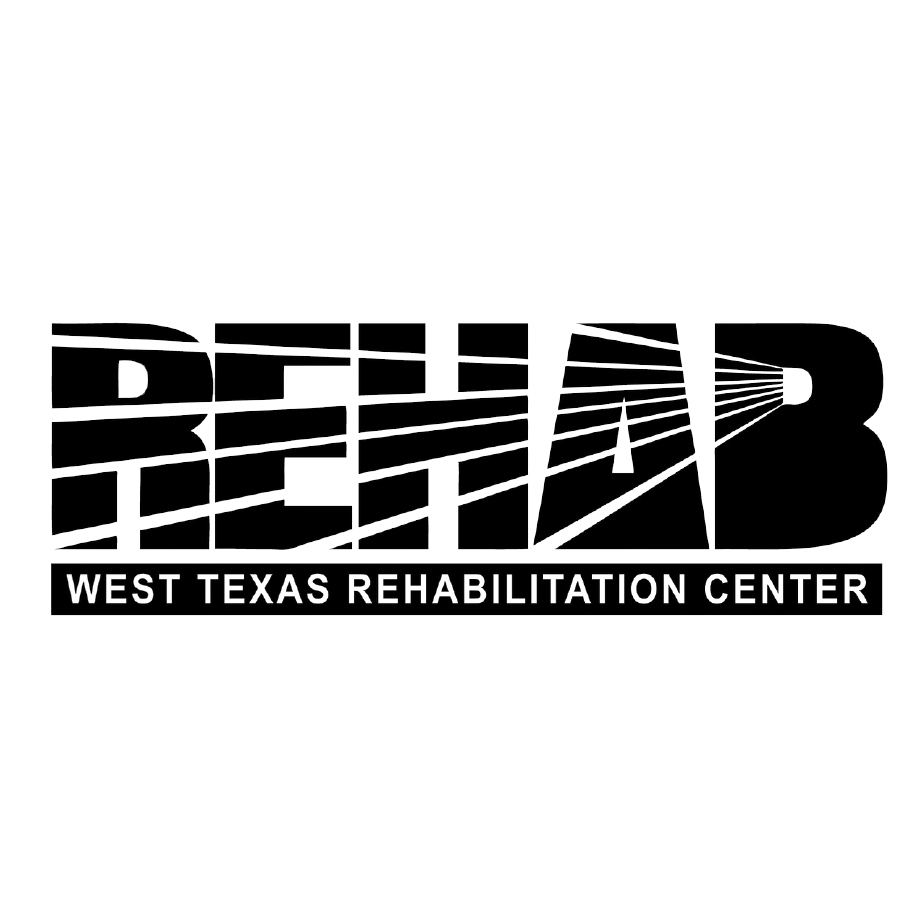Children in foster care write letters to senior communities
Age is just a number, as the saying goes, and no one knows that better than the children of the Audrey Grace House at New Horizons foster care and adoption center – and the residents of the care facilities with whom they communicate via cards and letters.
Despite attention from a loving and committed staff, senior communities can often be a lonely place, especially during the lock downs necessitated by the COVID-19 pandemic.
Similarly, the children at the Audrey Grace House have felt their share of loneliness.
But thanks to a pen pal program started by Abilene’s Home Instead Senior Care, life in lock down has been a little less isolating for both kids and seniors.
Born out of a Sunday lunch conversation that Home Instead’s Home Care Consultant, Julie Blair, had with her daughter last spring, the program was noticed by Lyndale Abilene, and Home Instead’s corporate office in Omaha, New England. Now the program is spreading hope across the country. 
“My daughter commented to me how sad it was that seniors weren’t able to see their families and she suggested I get in touch with New Horizons, where she worked before she went to nursing school,” Blair said.
After that conversation, Blair contacted the Audrey Grace House Administer Michelle Perkins, who got on board right away.
Perkins describes the Audrey Grace House as a residential treatment center for kids who are trying to integrate into foster homes, adoptive families or even back to their own families. She said the children are “definitely seeing a benefit to this.”
“The Audrey Grace House is down the street from The Oaks at Radford Hills,” Perkins said. “And some of the kids had commented how they would love to visit the residents there, but knew that because of COVID restrictions that wasn’t possible. But then Julie called – it was perfect timing.”
With Perkins all-in, Blair contacted Home Instead’s partner facility, Mesa Springs Healthcare Center, and got names of the seniors who were interested in being a pen pal.
“Our residents were all for it,” said Mesa Springs activity director Jamie Nowotny. “This has really helped them with the isolation they have been dealing with since lock downs began last March.”
She said she even designs entire activities around the letter writing, complete with pretty stationery provided by the facility.
“It gives them something to look forward to.”
Nowotny said as the correspondences increased, the residents became “excited to find out the kids’ stories,” adding that “some of our seniors have even commented that it reminds them of
when they would write to their husbands when they were serving overseas.”
Nowotny said the residents have come to genuinely care about the children and are able to relate to their feelings of isolation.
In fact, according to a statistic provided by Home Instead Senior Care’s corporate office, the Centers for Disease Control and Prevention reports that “36 percent of American seniors aged 75 and older report increased feelings of loneliness amid the pandemic.”
Nowotny has seen this first hand.
“Isolation really takes a toll on a person’s mental and physical health, and that’s been very hard to watch. But having these kids to communicate with has made this lonely time not so lonely,” she said.
Even some of Mesa Springs’ dementia residents write letters with her help.
“Seeing how the residents light up when they get a letter or a colored drawing is great, and it’s especially wonderful to see the dementia patients remember the name of their pen pal,” she said.
Nowotny knows how important the communications are, not only to her residents, but to the children of the Audrey Grace House.
“This is very near and dear to my heart because I grew up in foster care and understand what a benefit the seniors’ letters are to the kids,” she said.
Describing the program as a “tenfold blessing,” Perkins agrees that the seniors provide the children with a “much-needed connection.”
“For some of the kids, this is their only mail and they get really excited when they get a card that was written especially for them,” she said, adding that in these tough times in particular, they are “looking for something brighter and bigger than themselves.”
She said the letter-writers range in age from nine to 16 and will talk about anything from their favorite color, to what they do with their friends and what they did on Halloween.
“Typical kid conversation,” Perkins said, adding that even a few of the residents’ own grandchildren got in on the fun and wrote to their grandparents’ pen pals.
The letters are as individual as those writing, and Nowotny said one girl in particular “sends pages and pages of letters.”
“She writes to about three of our residents and even sends along her favorite quote, which is so personal and special,” she said.
Perkins said the children benefit as much as the seniors, because it makes them feel less alone.
“Something as small as having a letter to write and knowing they will get something back is really important, because for many of these kids, their future is uncertain and some of them have been let down by adults. Because of this, they get to see that there are good people out there,” she said.
“The letters are so pure and genuine and some are so sweet and heartbreaking,” said Perkins, who added that initially she thought the correspondences would be one-and-done.
“At first I assumed they’d write one letter to a senior and that would be it, but a lot of the kids wanted to keep writing,” she said.
Far from being a one-time, short-lived activity, Perkins said one of the children who had been adopted wanted to stay in touch with their pen pal and many want to “put a face with a name.”
“Some of these kids see their pen pal sort of as a grandparent figure and said they’d love to visit, read a book and just spend time with them,” she said.
While nothing has been concretely set in place, Nowotny and Blair have discussed window visits at some point.
“These connections are important and neither the seniors nor the kids want them to end,” Nowotny said.
In the meantime, the cards and letters will keep coming and the connections will continue to grow.
By Molly Hill


























Leave a Reply